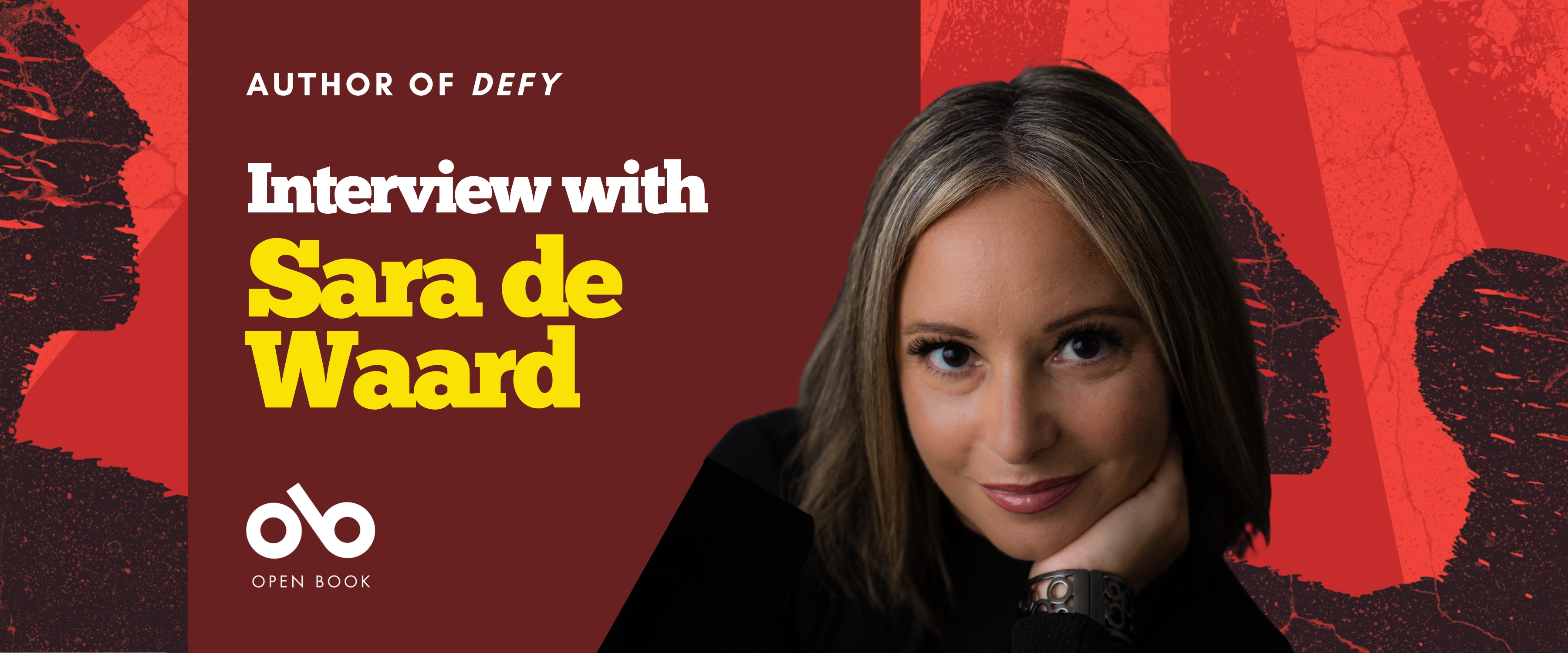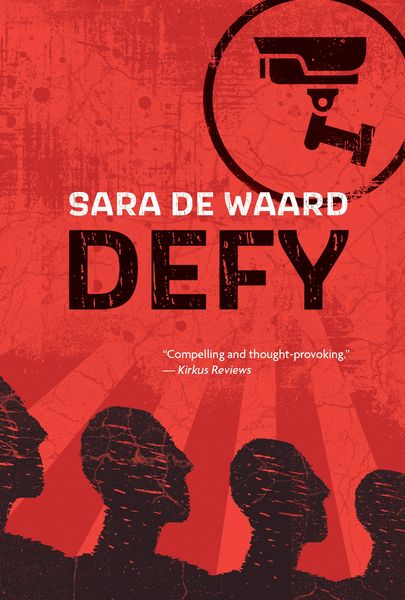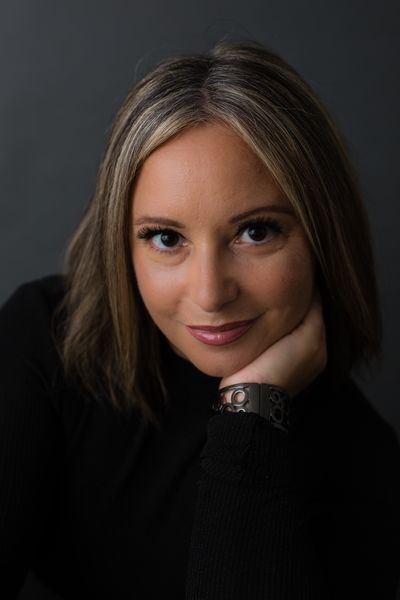In the New Speculative YA Novel, Defy, a Brave Teenager Fights to Save His Sister from the Clutches of an Authoritarian State
Narratives about dystopian autocracies have been written for many decades now, but each generation of writers finds new inspiration in the examples from the world they live in. These stories can issue warnings about where our societies could turn, or perhaps delve into true underpinnings of nations and states that have never quite been reckoned with in full.
Author Sara de Waard's latest work adds to that tradition with its own unique take on these themes. Inspired by a dream, the author set about capturing a speculative world that would speak to young adult readers, and made a distinct effort to centre characters that these readers would identify with deeply.
Originally envisioned as a screenplay, the author's new novel, Defy (Cormorant Books), is a gripping tale about a young man trying to save his sister's life in a society where the government has seized control over almost every aspects of its citizens' lives. Mahlah has been arrested and sentenced by this authoritarian forces in the city of Zalmon, but 17-year-old Darius discovers shocking information that could expose a high-level conspiracy at the heart of the society, and upend the popular teachings from its sacred texts to gain back a life of autonomy, dignity, and love.
For more details on how this exciting new novel came to be, check out this Long Story Novelist Interview with the author, right here on Open Book!
Open Book:
Tell us about your new book and how it came to be.
Sara de Waard:
Defy came to me in a kind of dream state. I remember bolting up in bed and saying, “Death Date birthday cards!” or something like that. The idea was relentless. I wrote it as a screenplay first because it’s always been a dream of mine to see one of my stories on the big screen – I tend to be a very visual thinker. Many years later, I adapted Defy to its novel form. I remember my first inclination that it would resonate with readers was when I saw its name doodled on one of my student’s binders after the story was read aloud to him by a supportive colleague of mine. Officially, Defy is the story of a 17 year-old boy trying to save his beloved little sister from a government imposed death sentence. To me, it’s the story of a family in mourning, trying to deal with grief in an overtly controlling society.
OB:
Is there a character in your book that you relate to? If so, in what ways are you similar to your character and in what ways are you different?
SDW:
Sometimes, I feel like there’s a part of me in all of the characters of my books and screenplays. I imagine that is true for a lot of writers. For Defy, I think I relate to Sela, the protagonist’s mother, the most. Sela is afflicted with a disease called Datura which is a constant state of being emotionless, apathetic, robotic, and miscommunicative, despite her deepest desires. As a mom, I feel like I’ve made a million mistakes throughout my parenthood journey but I always yearned to be good and then to be better. The problem is, it’s a paradox. Moms are only humans who are trying to do the best they can, with what they can, at every given moment. Sela exemplifies all of that. I didn’t even realize I had this relationship with her until this very question made me mindful of it. Writing is like that, I think.
OB:
What was the strangest or most memorable moment or experience during the writing process for you?
Your CanLit News
Subscribe to Open Book’s newsletter to get local book events, literary content, writing tips, and more in your inbox
SDW:
While I was reading through the final draft of Defy after the editing back-and-forth – before it was sent to print – I was engrossed in the climax. I was in the middle of the chapter – my fists were tight and sweaty, my teeth were clenched, my imagination was captivated by… me. It’s a very weird experience to be reading something you wrote, engrossed in the words as if they were someone else’s. Thank goodness I really enjoyed what I was reading (this phenomenon absolutely could have backfired, lol). That was the most memorable moment because thanks to DCB/Cormorant Books, Defy will find its people and be an emotional experience for readers I may never have the chance to know, but will always be connected to, because of it.
OB:
What do you need in order to write – in terms of space, food, rituals, writing instruments?
SDW:
I’m the kind of writer who first writes in her mind for many months leading up to when I actually sit down to get it into a document or onto paper. I like to see it as a full story (or at least healthy excerpts of the story) before I commit to it. I think of it as having these noisy characters in my head and needing to free them and their story so I can stop thinking about them. When I am ready to type the story, I feel like I’m simply a vessel and I almost dissociate. Sometimes, people ask me about characters or parts from my stories and I sincerely forget what they’re referring to. It’s weird. I don’t think that’s unique to me as a writer, but it’s definitely strange. Short answer: I prefer to write in places like Tim Hortons or Starbucks for the ambient noise because when I’m in a quiet house, all I can think about is how much laundry there is to do or how I should be sweeping my floors.
OB:
Do you feel like there are any misconceptions about writing for teens and young adults? What do you wish people knew about what you do?
SDW:
I think that there can be misconceptions about writing for teens and young adults but I also think a lot of writers get it right. When it doesn’t go well though, I feel like there is a grave disconnect between what teens and young adults want and need versus what the writers think they want and need. Humans always have inherent goals (and opposing obstacles) in their lives and for some reason, some adults tend to forget what it was like when they were younger. They look at teens and young adults through a clouded lens, unwilling to see the beauty of adolescence and the admiration and respect it deserves. I am lucky to be a part-time teacher as well as an author. I believe this keeps me in awe of youth and I hope that always transfers to my writing.
OB:
Was there a YA book you read as a young adult that is particularly meaningful to you?
SDW:
Yes! I read a lot as a kid and it was a very healthy escape for me. I don’t have a ton of childhood memories but I have this everlasting memory of sitting alone on the top bunk in my brothers’ room, reading Judy Blume’s Tiger Eyes. I was near the end of the book and there was a big reveal of something that was crucial to the protagonist and the story. I bawled my eyes out. Like, an I-can’t-breathe kind of cry. Looking back, it was probably cathartic and I needed that release. Sometimes, books give you the permission you don’t even know you need.
OB:
What are you working on now?
SDW:
In true form, I have a bunch of stories running rampant through my mind. There are three that are noisiest and most in need of freedom. Two of them are dystopian and deep – one being a sequel to Defy. The third is begging for a genre – it’s still just a nugget of an idea that I’m not even sure is realistic enough to pursue. Regardless, these three suckers have me hostage right now and I look very forward to getting them on the page then hopefully into the hearts of readers throughout time.
_____________________________
Sara de Waard is an author, screenwriter, and educator of Métis descent and is currently in the process of exploring her family’s heritage. Her debut novel, White Lies, won the 2022 ETFO Writer’s Award for Women. After completing her BA in Radio and Television from Toronto Metropolitan University and a stint in London, ON, de Waard returned to her hometown of Port Colborne, ON, where she currently lives with her kids.







